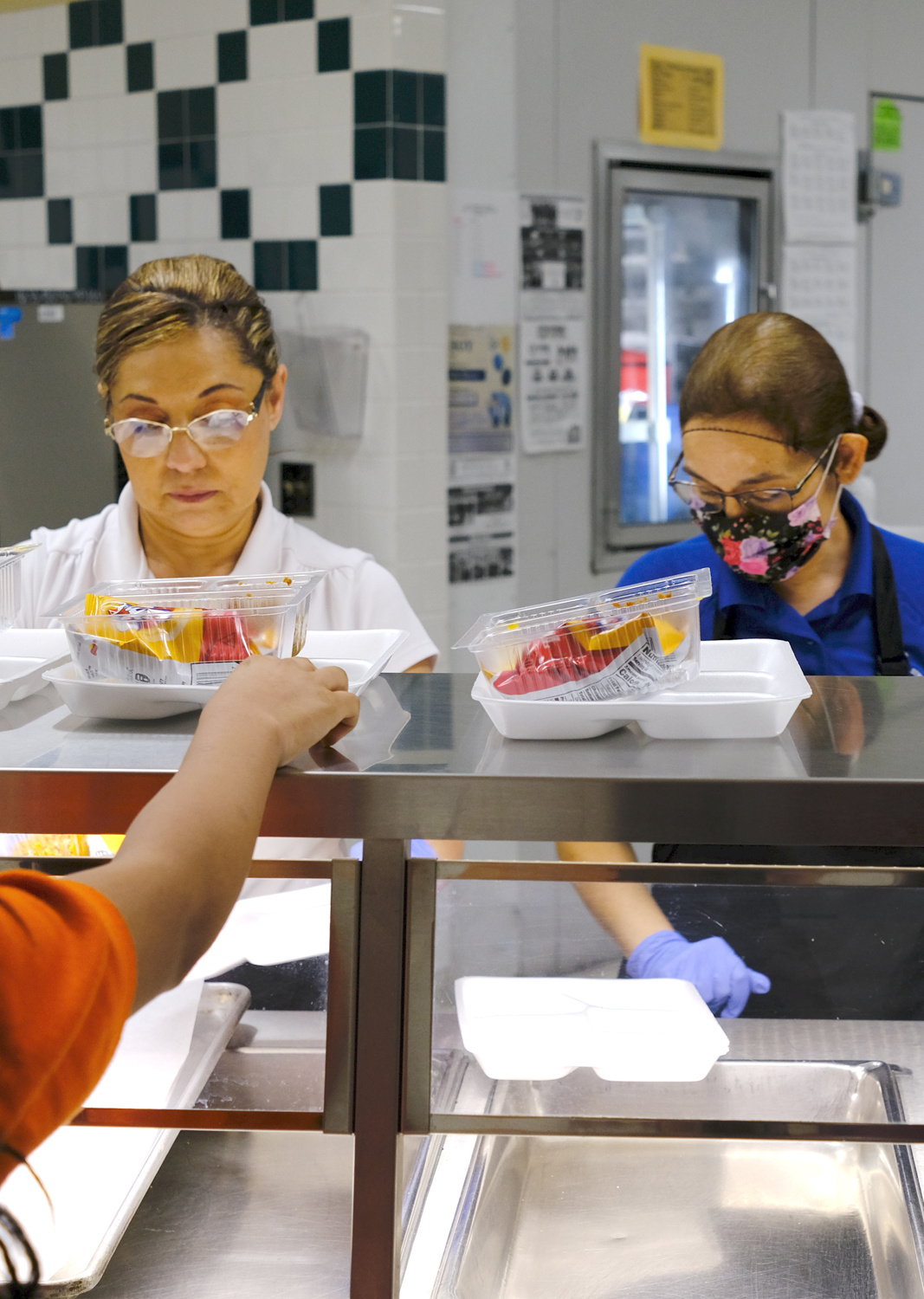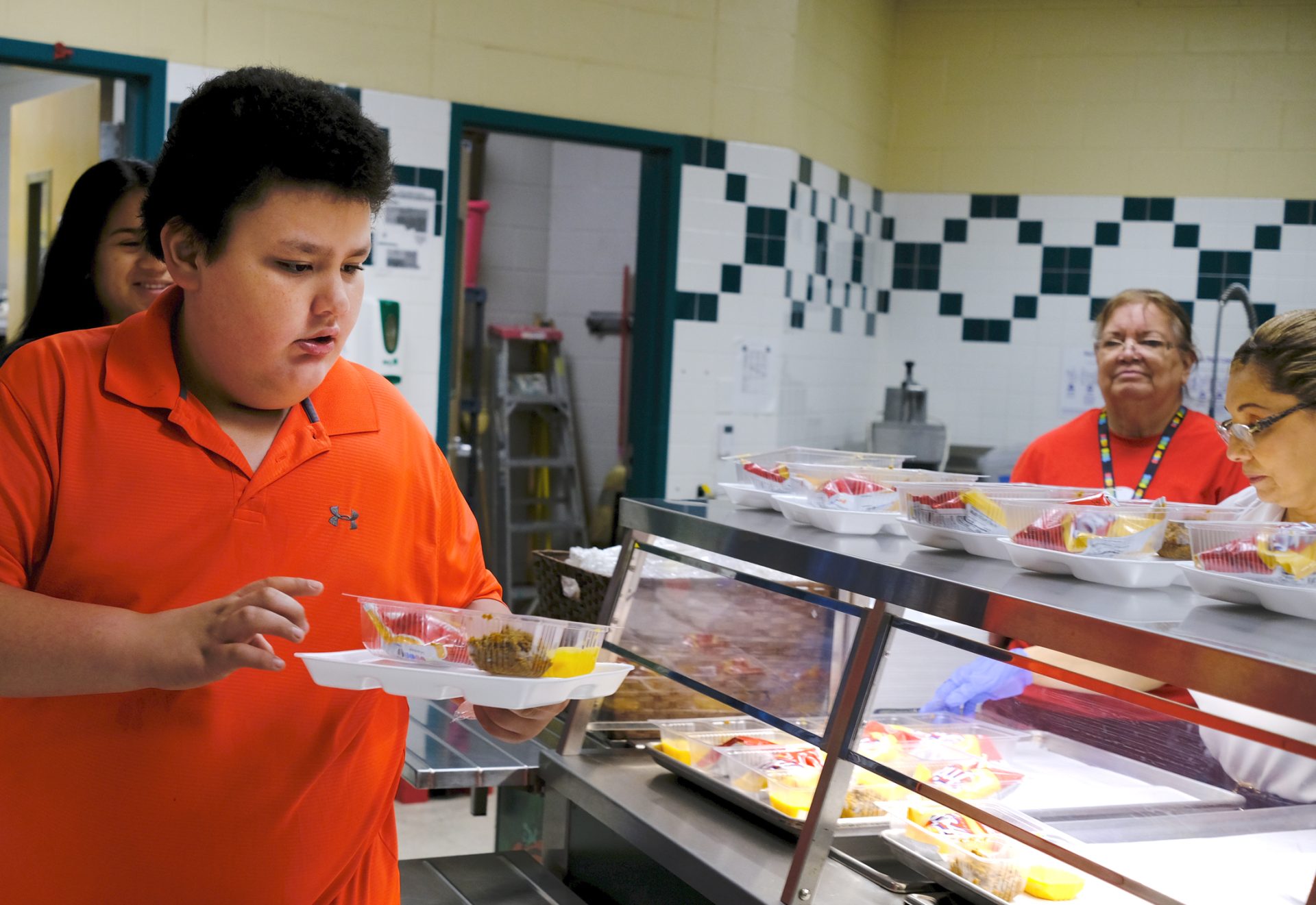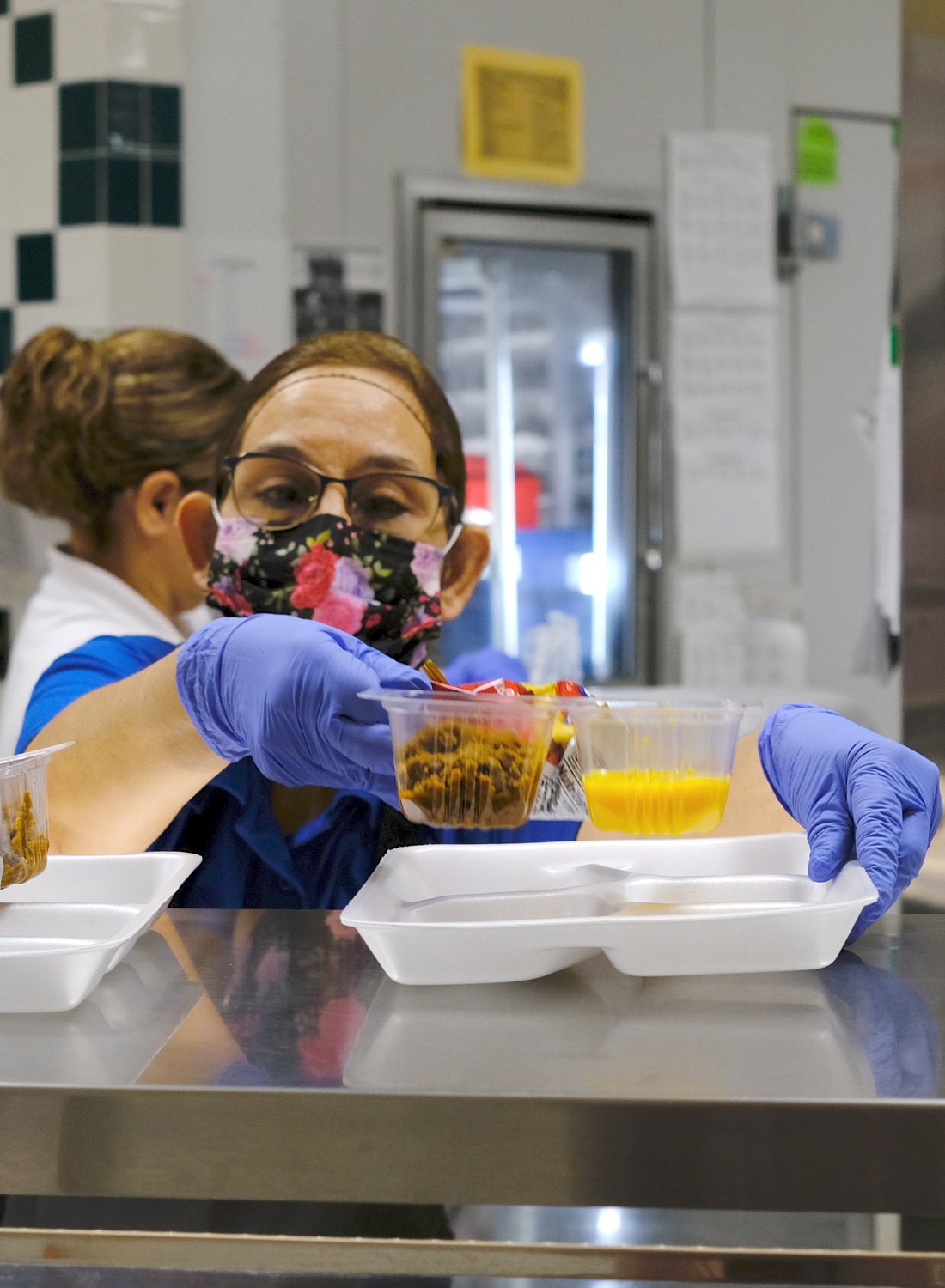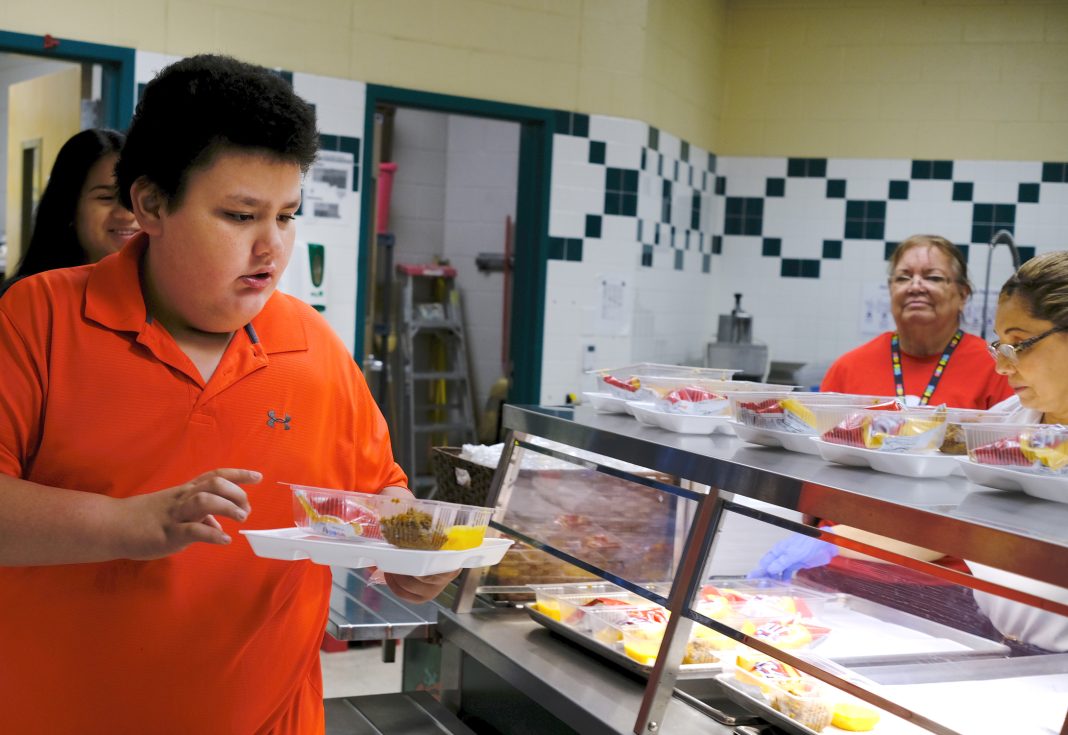The Brownsville Independent School District will increase its reliance on scratch-cooked options, thanks to a $186,000 grant from the Chef Ann Foundation to transition from a heat-and-serve model to one rooted in scratch cooking using whole, fresh ingredients.
BISD was one of seven school districts across the nation chosen as the fifth cohort for Get Schools Cooking, an intensive three-year assessment and strategic planning program that provides public k-12 schools with the operational knowledge to transition from heat and serve to the scratch cook operational model.
The districts receive a $35,000 grant to implement any of the recommendation and they also receive school food institute courses, which are online courses taught by Get Schools Cooking professionals.

“We had 45 districts from across the country that applied and Brownsville was one of the seven that was selected, so it’s a really special opportunity,” said Anneliese Tanner, executive director of School Food Operations for Get Schools Cooking, which is based in Boulder, Colorado, and operates remotely throughout the country
Tanner is based in Austin and said she looks forward to working with BISD, the first Texas district chosen for the program.
Tanner said BISD is also the largest school district ever chosen for the program. “so we’ll be able to share out the progress and the learning that Brownsville has with other larger districts, with other large rural districts or districts that are in agricultural areas to help advance scratch cooking across the country and not just in Brownsville.”
She added that the commitment in the program is to increase the amount of scratch cooking. “It is a three- to five-year process. The program that they’re in is three years, and we’re coming down in April for the assessment and then the strategic plan that we we will write is a three- to five-year plan. It’s so many factors that will have to be considered. so many things to do that the change won’t happen overnight. With the plan it can begin to happen at a steady pace and the community will be able to see the change,” she said.
The training in April will include staff, as well as financial training with the food service management team and an on-site assessment at each of BISD’s more than 50 schools “where we observe operations and gather the information we need to make recommendations for increasing scratch cooking,” she said.

Jackie Cruz, BISD Food and Nutrition Services director, said the impetus to apply for the grant came from parents who had asked about scratch-cooked meal options, as well as from Deputy Superintendent for Operations Nellie Cantu and Superintendent Rene Gutierrez.
“We just want to build on what we’re already doing. We’ve already incorporated some scratch cooking, some speed scratch cooking, but what really appeals to us about this foundation is that they provide you with resources to operationalize incremental increases in scratch cooking. …I really believe that they selected us because they see our potential,” Cruz said.
She said she foresees more farm-to-table procurement.
“This gives us an opportunity to set up collaborations with local vendors, to say, OK, can you produce this for us. We’re not only giving back to our school community but to our overall community as well,” Cruz said.
Stefany Castrejon, assistant FNS director and menu planner, said BISD is already doing two meals a week using what she called “speed scratching,” where one ingredient is prepared from scratch to go with one that comes already prepared and is just heated up. The goal is to transition to more scratch cooking over time.

“Scratch cooking we know has lots of nutritional value when the districts have control of the ingredients,” Tanner said. “There are studies that show when kids have scratch-cooked and nutritious meals at school they do better academically and there are less behavior issues. There’s also the ability to be really mindful about procurement and for the school district to exercise its values when it’s purchasing food to scratch cook so the kids can experience more local products, for example being able to celebrate the agricultural region that Brownsville is in.
“To that point as well, when the district is scratch cooking they can serve more meals that resonate culturally with the students rather than what big-brand manufacturers make for the entire nation, and so I think when the students are represented in their meals and when they can see food products that are grown in their region and in their area and they know about the time and energy it takes to make that food that they feel more involved in the atmosphere at school.” she added.
A memorandum of understanding between BISD and the Chef Ann Foundation for the Get Schools Cooking program to go forward is on the BISD Board of Trustees agenda for its meeting Tuesday and is expected to be approved.
Cruz and Castrejon expressed gratitude for the board’s and administration’s support for the project.




